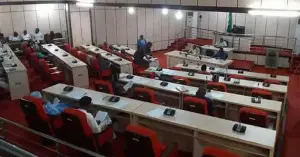The Federal Government of Nigeria has unveiled a comprehensive list of 26 tradepreneur courses as part of its new technical education curriculum for tertiary institutions across the country. This significant educational reform aims to modernize technical colleges and equip young Nigerians with globally competitive skills.
According to a statement signed by Boriewo Folasade, Director of Press and Public Relations at the Ministry of Education on Thursday, the new curriculum was jointly unveiled by the Minister of Education, Dr. Tunji Alausa, and the Minister of State for Education, Professor Sulaiman Ahmad.
"The Federal Government has announced a landmark reform of technical education aimed at equipping young Nigerians with globally competitive skills and preparing them for the jobs of tomorrow," the statement read.
The reforms are designed to address several key areas including reducing curriculum overload, strengthening trade competencies, aligning with international standards, and building a workforce capable of driving Nigeria's economic growth.
The 26 Approved Tradepreneur Courses
The newly approved courses cover a diverse range of practical and in-demand skills across various sectors. They include:
Electronic Systems Maintenance
Fashion Design & Garment Making
Fish Farming (Aquaculture)
Furniture Making & Upholstery
Leather Works
Livestock Farming/Animal Husbandry
Networking & System Security (Satellite/TV Antenna Installation)
Mechanised Agriculture (Smart Agriculture)
Autobody Works
Auto-Electrical Wiring
Automobile CNG Conversion & Maintenance
Automobile Mechanics
Beauty Therapy & Cosmetology
Brick Laying, Block Laying & Concreting
Catering Craft Practice
Computer Hardware & GSM Repair
Creative Media (Digital Media Production)
Motorcycle & Tricycle Repairs
Plumbing & Pipe Fitting
Refrigeration & Air-conditioning
Social Media Content Creation & Management
Painting, Decoration & Interior Finishes
Solar PV Installation & Maintenance
Welding & Fabrication
Woodwork, Carpentry & Joinery
Tiling & Cladding (Decorative Stonework/Floor Cover)
This curriculum overhaul represents a significant shift towards practical, industry-aligned education that addresses the skills gap in Nigeria's workforce. The courses have been carefully selected to reflect current market demands and emerging sectors in the Nigerian economy.
The introduction of these courses is expected to enhance employability among Nigerian youth and foster entrepreneurship in various technical fields, ultimately contributing to the nation's economic development and reducing unemployment rates.
Stay updated with more educational news by following BenriNews on our social media platforms: Facebook, Twitter, LinkedIn, WhatsApp, and Telegram.













